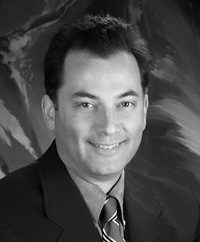My wife was at Turkey Hill around the holidays when a conversation between two technicians from a local car dealership rained down on the store.
“Conversation” might be too generous of a word; one of the men unleashed an oral barrage that he punctuated with f-bombs.
Sara is no prude, nor is she confrontational. But she had to say something.
“Would you please stop swearing?”
It’s a question that most of us should ponder, because we’ve become a nation of incurable cursers. We hear it everywhere, and we do it everywhere. The technician sheepishly apologized to Sara as though he didn’t realize he had been swearing.
Naughty newscast
Martin Scorsese’s “Wolf of Wall Street” set the ignominious record for f-words in a movie, more than 500 in the span of 180 minutes. That’s a rate of 2.81 per minute.
The movie premiered on Christmas Day. Merry Effing Christmas to you and yours.
We saw “Anchorman 2” on Dec. 25. We are big Will Ferrell fans but have small expectations for sequels, which “Anchorman 2” came nowhere near achieving. For a PG-13 rating, there was an excess of sexual innuendo and, of course, ample swearing.
Then again, it was nothing you can’t hear on a real newscast:
Profanity has become so prolific – aided and abetted by social media – that we almost seem immune to it. We have a megaphone but shun the responsibility that goes with it.
A 2006 Associated Press-Ipsos poll found that 74 percent of Americans encountered profanity in public frequently or occasionally. Two-thirds thought people swore more than they did 20 years earlier.
It has only gotten worse.
Amy Brenoff, a senior writer for The Huffington Post, pondered this phenomenon last year (her post warned of graphic language; the dashes are mine):
How exactly did this happen? And does the world realize what a great loss it is to those of us who would prefer to savor its use? Saying “f—” used to be like eating caviar – a rare experience indulged in so infrequently that the occasion itself became memorable. Instead, “f—” has become just another word, as in “Can you please change the f—ing lightbulb?”
Rant against Santa
Jon Stewart is a really bright, funny guy, but the swearing (bleeped out for viewers at home) on “The Daily Show” is gratuitous. HBO’s “Veep,” starring Julia Louis-Dreyfus as the vice president of the United States, is brilliant, but such language!
The thing is, “The Daily Show” and “Veep” would be funny without so much swearing. In fact, they might be better, because there is such a thing as too much of a good thing.
And, yes, a little bit of swearing can be, if not a good thing, at least an effective thing.
I swear. I have since I was a kid playing baseball on the playground and getting too competitive. (Maybe my cursing was a curse, one for which I paid with a blown-out shoulder by sixth grade.) Some of my college dorm mates will remember a particular blue rant of mine against Santa for being such a jerk to Rudolph, and our resident advisor Steve Robinson asking for “some volume, Mr. Goulet,” his way of saying lower your voice.
So I’m culpable and certainly not proud of my sometimes foul mouth. But there is a difference between (more or less) private and public profanity and the sheer quantity of either.
Taboo to normal
Former Yahoo CEO Carol Bartz made a name for herself with a steady stream of public profanities during her tenure. The result was bad PR for Bartz and her company.
In one instance, Bartz cursed at an antagonistic interviewer; but as one blog noted, “Executives should stay out of the fray and focus on delivering the message.”
Contrast Bartz’ serial swearing with Boston Red Sox slugger David Ortiz, who used a single instance of public profanity to great effect. In the wake of the Boston Marathon bombings, Ortiz addressed the crowd at Fenway Park.
“This is our f—— city,” Ortiz said, “and nobody’s going to dictate our freedom.”
Bartz got fired; Ortiz’ line ended up on T-shirts.
An article from Elle magazine in 2013 cites Harvard professor Steven Pinker, author of the book, “The Stuff of Thought: Language as a Window Into Human Nature.” (Again, the dashes are mine.)
“You can use a swear word like f— to basically ping the emotional centers of the brain and perk up a listener,” he said. “But when it is overused, the word shifts from taboo to normal and doesn’t have the same effect. We’ve seen that happen in the twentieth century.”
And only gain strength in the 21st century.
I know what you’re thinking:
What the $%@#! is a guy doing reading Elle?


